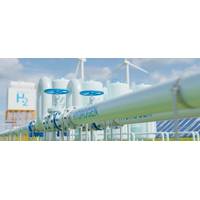Kenya Yet to Decide oil Refinery's Fate
Kenya is yet to decide whether to turn east Africa's only oil refinery into an oil storage facility or pay for its upgrade after buying the remaining 50 percent stake from India's Essar Energy, the energy minister said on Friday.
Fuel distributors have long complained about the poor quality products from the 50-year-old refinery in the port city of Mombasa and prefer importing cheaper and better imports.
Kenya's government has agreed to pay Essar $5 million to buy the Indian firm's half of the refinery after Essar exited the joint venture in November 2013 and abandoned plans for a $1.2 billion upgrade on the advice of consultants who said it was not economically viable.
However, the decision to keep the plant working is backed by prospects for an oil and gas boom in the region following a string of discoveries in Kenya and Uganda, as well as political pressure to keep it running to prevent job losses, analysts say.
Essar said it had planned to increase the refinery's crude handling capacity to 4 million tonnes of crude per year (79,000 barrels per day) from 1.6 million now.
"Shortly we'll be looking at various options which are available to us from using the refinery as a tank farm that can give us security of supply," Davis Chirchir, the energy and petroleum minister, said told reporters at a geothermal power plant at Olkaria in Kenya's Rift Valley.
"Or whether we use it as a transhipment tank farm or look at upgrading it."
Oil products from the plant serve customers in Kenya, Uganda, Rwanda, Burundi, Tanzania and parts of Democratic Republic of Congo.
Chirchir was visiting the geothermal power plant owned by state-controlled Kenya Electricity Generating Co (KenGen) , near the town of Naivasha north of Nairobi, which is being expanded to address chronic power shortages that critics say have discouraged investment.
Endowed with vast geothermal energy resources, the east African nation wants to expand its generation capacity by 5,000 MW by 2017 from about 1700 MW now, to lower tariffs and cut costs of doing business.
East Africa's largest economy is struggling with ageing energy infrastructure and the government plans to increase electricity supply and at the same time keep costs low.
"I think the important thing here that we really need to appreciate is we are driving the cost of power in Kenya down to make our country competitive," Chirchir said.
"When we do that we expect to spur demand, because spurring of demand is about introducing new industry in our country."
The minister said Kenya would attract large companies to inv




